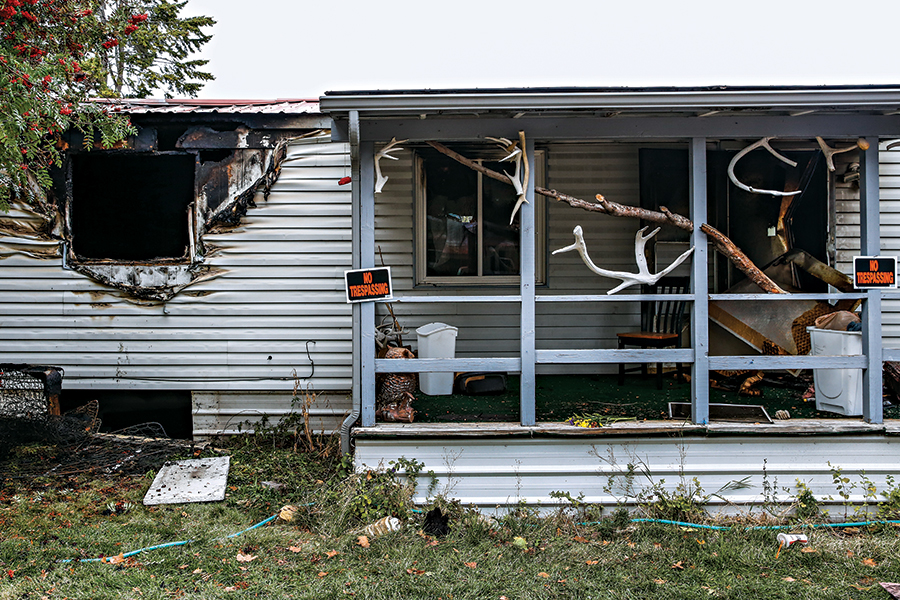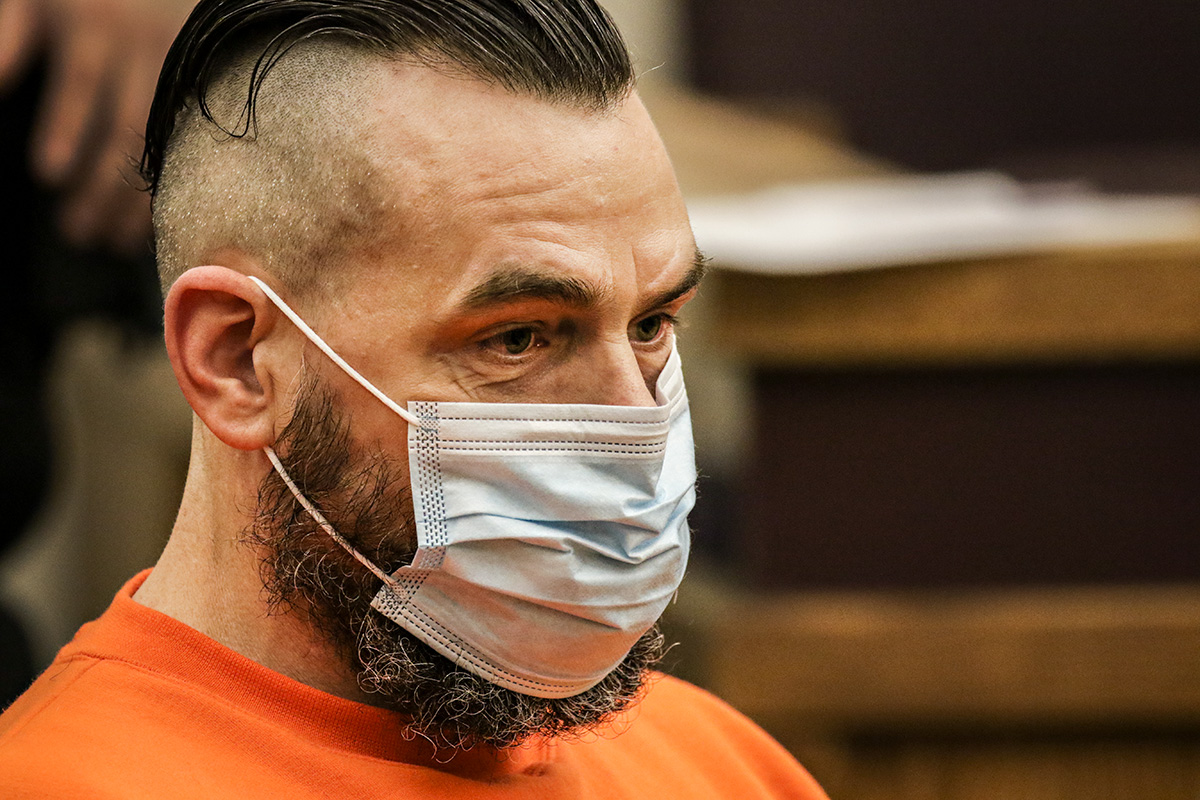Plea Deal in Deadly Trailer Fire Rejected by Judge
Prosecution says new information has precluded charging Jason David Weldele with deliberate homicide; defense questions if suspect could be convicted on lesser charge
By Andy Viano
The legal odyssey of a man once accused of murdering his “semi-ambulatory” father by trapping him inside a burning trailer will continue, after a Flathead County judge rejected a plea agreement to a drastically reduced charge that would have included no jail time.
Jason David Weldele was charged with deliberate homicide before reaching an agreement with prosecutors earlier this year in which he agreed to plead no contest to a single count of criminal endangerment. But at at a Feb. 18 change of plea hearing, Judge Amy Eddy declared she would not be bound by a five-year suspended sentence that had been agreed upon by both parties and allowed Weldele time to consider his next move.
Tuesday morning, Weldele withdrew his no contest plea and pleaded not guilty to criminal endangerment. He is set to stand trial no sooner than March 29 and remains in custody on $100,000 bail. Felony criminal endangerment carries a possible sentence of up to 10 years in prison.
The latest twist in the bizarre case comes after prosecutors acknowledged in a recent filing that “new compelling information came to light” as the events of Oct. 16 and 17 were investigated, and that “information was obtained that raised questions about the origins of the fire.” Both the prosecution and defense were ordered to file sentencing memorandums after the plea deal was first reached, an unusual step requested by Eddy to address the “dramatic reduction in charges and lenient recommended sentence.”
The sentencing memorandums provide some new details but offer no concrete explanation of who or what caused the deadly blaze. The confusing sequence of events leading up to the death of 63-year-old Daniel Gerald Weldele included several 911 calls made by the suspect — including one that alleged intruders had placed cameras inside the home — and the eventual discovery of the fire just after 2 a.m. on Oct. 17, after a neighbor called 911.
In the original charging documents, prosecutors described Jason Weldele as “acting erratic” when they arrived on scene, alleged that he fled from officers when they asked if anyone was inside the house, and pointed to the fact that the exits to Daniel Weldele’s room were barricaded by furniture as evidence of the younger man’s guilt.
The sentencing memorandum filed by Deputy County Attorney Amy Kenison brings other possible explanations to light, however, and notes that some evidence in the case could have been excluded at trial “due to investigative missteps.”
“Witnesses claimed that other individuals had started the fire and that others had a motive to burn Jason Weldele’s house,” Kenison wrote.
The memo also notes that both Weldeles were known to use methamphetamine and that the victim, Daniel Weldele, “was known to try to burn imaginary ‘bugs’ on the carpet” when he was using. An autopsy showed that Daniele Weldele had meth in his system at the time of his death. Jason Weldele told officers he had used meth two days prior to the fire. He was not drug tested after his arrest.
To justify the charge of criminal endangerment, Kenison wrote that she did so because Weldele did not call 911 at the time of the fire, that he failed to help his father out of the burning building, and that he was the only “physically able” person in the trailer who could have moved the furniture to barricade his father’s room.

In his sentencing memorandum, Liam Gallagher, Jason Weldele’s court-appointed attorney, took aim at the prosecution and questioned whether or not his client could be convicted of any criminal conduct if the case went to trial. He wrote that the original affidavit charging Weldele “relies heavily on speculative inferences” that could not have been “supported by actual proof.”
“Nothing about these facts conclusively supports any inference that defendant actually caused death, or that defendant actually started a fire,” Gallagher wrote.
Weldele’s attorney also took the opportunity to make a broader point about the criminal justice system, comparing Weldele’s situation to that of James Quen, who was accused of shooting and killing a man in Hungry Horse in April 2018. Quen was originally charged with deliberate homicide before reaching a plea deal with prosecutors to a reduced charge of negligent homicide and a 10-year suspended sentence. The judge in that case, Heidi Ulbricht, also rejected that plea deal and County Attorney Travis Ahner dropped all charges against Quen days later.
Gallagher said the tactic of charging a high-level crime, like deliberate homicide, and offering a deal in exchange for a plea to a lesser offense, forces defendants to make a difficult decision.
“Like Quen, in this case the state’s proffered reduction of charges and offer of probationary time placed defendant in an all too familiar position for those accused of crimes in our country: wondering whether he should risk the entirety of his life on a trial, or whether he should mitigate that risk and accept the outcome offered by the State. And, in accordance with the time-honored tradition of our trial courts, defendant opted for risk mitigation,” Gallagher wrote.
Ahner did not comment specifically on Weldele’s case but did say it was not unusual for a case to develop — and for charges to be amended — during the course of an investigation.
“There are times when subsequent investigation reveals either issues with a case or insight from various witnesses that changes the course of the case, and maybe even changes which charges might be appropriate,” Ahner said. “It is an important aspect of due process within our system.”
Update (Feb. 23, 9:30 a.m.): This story was updated to reflect Weldele’s plea of not guilty to criminal endangerment on Tuesday morning.